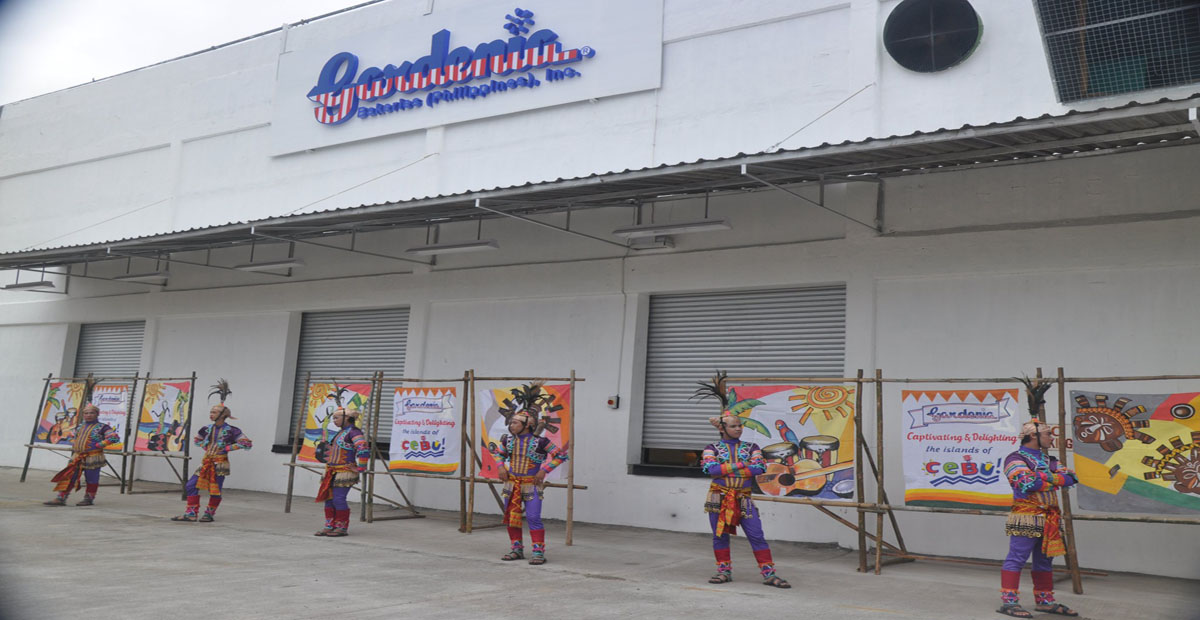
GARDENIA STARTS OPERATIONS IN ITS CEBU BREAD PLANT
Gardenia Cebu plant is now fully operational with a daily capacity of 50,000 loaves serving the needs of the entire province of Cebu and the Northern Mindanao area.
The company rapidly completed the construction of its new plant after receiving numerous requests and demands of bringing Gardenia products to Cebu and nearby provinces. Known for making bread production process a notch higher, Gardenia’s Cebu plant features giant horizontal mixers from the United States, an automated dough divider-rounder and intermediate proofer equipment from the Netherlands, a tunnel oven with a race track bread cooling conveyor from Germany, and an automated slicer and bread bagger from the United States.
Gardenia utilizes only the finest ingredients from all over the world to ensure Cebuanos that they can have the same high quality and great tasting Gardenia loaf breads enjoyed in the country as well as in Singapore and Malaysia, where the brand is the market leader.
Freshness and Superior Quality Guaranteed
“Gardenia guarantees freshness and quality. We can’t compromise that. The only way for us to reach the Visayas market is to put up a plant in Cebu,” Gardenia President and General Manager Simplicio Umali, Jr. said.
Gardenia makes full use of a plant in Biñan, Laguna that has the capacity to turn out 650,000 loaves and buns daily. Shipping from its Laguna plant all the way to the Visayas and Mindanao markets was not feasible as the amount of time it would take for the products to reach their destination would compromise their freshness guarantee.
“Now, we are pleased to announce to all the Cebuanos that our new plant located in Lapu-Lapu City, Cebu, near the Mactan bridge, is fully operational to cater to the needs of Central Visayas and Mindanao market,” Umali said.
Umali also assured Cebuanos that they will only enjoy fresh and superior quality products. The company follows current Good Manufacturing Processes. Its equipment and baking process have earned the company the International Organization for Standardization (ISO) 9001:2000 and just recently got upgraded to ISO 9001:2008 for product quality, and the Hazard Analysis and Critical Control Point (HACCP) Certification for food safety.
Another practice unique to Gardenia is the G-lock system. An integral part of Gardenia’s quality control system, this resealable clip is color-coded to indicate the day that the bread is baked for. It also contains all of its vital information such as the “Best Before” date, the plant that baked the bread, a production code, and the suggested retail price. The G-lock has a specific color for a particular day to let the consumer know when the bread is delivered instead of just when it will expire. The corresponding G-lock colors with its delivery day are as follows: Tan (Monday), Orange (Tuesday), Yellow (Wednesday), Blue (Thursday), Green (Friday), Red (Saturday), and White (Sunday).
“With G-lock system, which is not practiced by other bread suppliers, only fresh bread is kept in store shelves, while unsold bread is pulled-out every day of delivery,” Umali said.
Good bread right in your table
Cebuanos can now enjoy the “Masarap kahit walang palaman” bread.
The Cebu plant produces 2,000 loaves per hour or a daily capacity of nearly 50,000 loaves. Among the wide array of Gardenia bread products that are initially offered are Classic White Bread, High Fiber Whole Wheat Bread and some flavored loaves. Other loaf bread variants will also be gradually available in the market.
Gardenia breads have the qualities of good bread, exactly what consumers look for. It has the good taste, freshness, freshly baked aroma, softness, and nutritive value that will surely satisfy consumers.
Wide Distribution Reach
Currently, Gardenia bread, which is widely distributed in entire Luzon, is the leader in Metro Manila with a market share of more than 65% based on Nielsen retail data.
Also, the company covers the Western part of Visayas including Mindoro, Panay and Negros islands and Eastern part of the Visayas serving the major islands of Samar and Leyte by utilizing the country’s Roll-On Roll-Off (RORO) nautical highway through its fleet of company-owned feeder trucks.
“We aimed to expand our coverage and make Gardenia breads easily accessible and available to all consumers in the country. Now, with the Lapu-Lapu plant, we are now serving the bread requirements of Cebu, Bohol, Cagayan de Oro, Malaybalay, Butuan, Iligan and Davao,” Gardenia’s Marketing and Sales Manager Nestor Constancia declared.
He further added that Gardenia’s unique distribution system will utilize a new fleet of feeder trucks and delivery vans within these cities.
More jobs
The new Lapu-Lapu plant generated jobs for Visayas residents and will help in improving the city’s economy.
Gardenia hired more than 50 employees for production, sales and administration functions. They were brought to the company’s modern manufacturing facility in Laguna for intensive training especially on the most advanced baking technique, HACCP and ISO procedures.
The company will hire more, and eventually expand further, in the future depending on the take-off of the Gardenia products in Cebu and nearby provinces,” Umali said.